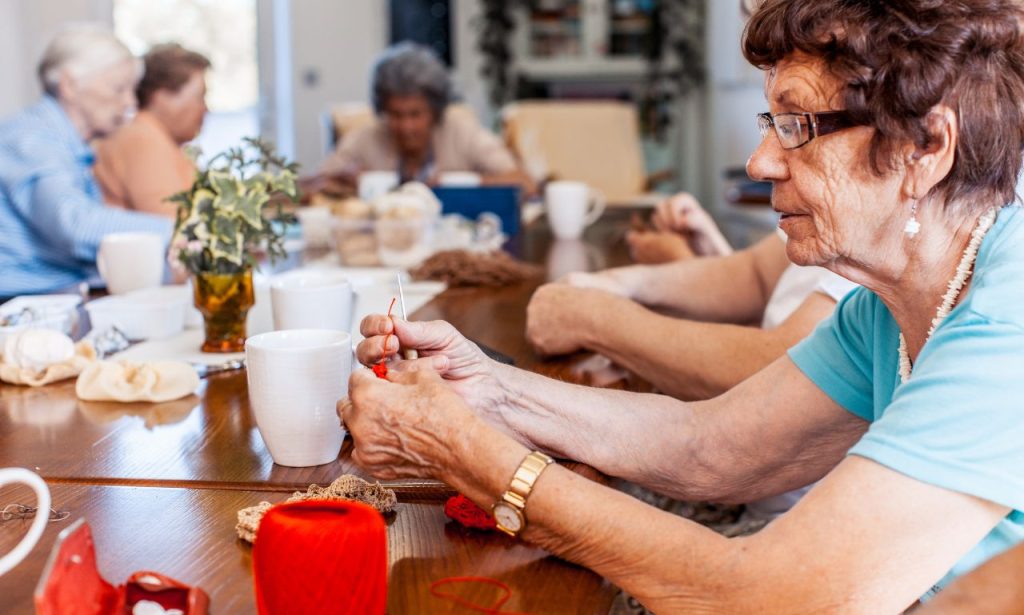The world often rushes by, a blur of deadlines, ambitions, and fleeting connections. Yet, nestled within this whirlwind are pockets of quiet wisdom, places where time seems to move at a different pace. These are the spaces inhabited by our elders, the keepers of stories untold, the weavers of a rich tapestry woven from experience and resilience. Have you ever paused to consider: what do you like most about working with the elderly? The answer, for many, lies in the profound privilege of stepping into their world, of becoming a part of their intricate and beautiful tapestry.
The Rewarding Nature of Working with Seniors
Working with the elderly isn’t merely a profession; it’s a calling. It transcends the mundane tasks of caregiving and delves into the depths of human connection. It’s about recognizing the inherent value in every wrinkle, every silver strand, and every shared memory. The rewards are plentiful, often subtle, and always deeply affecting.
Unique Life Stories

Every senior holds within them a treasure trove of stories, each one a thread in the grand tapestry of their life. They’ve witnessed firsthand the ebb and flow of history, the rise and fall of empires, the evolution of culture. To spend time with them is to embark on a journey through time, to gain perspectives that no textbook can offer.
Imagine listening, captivated, as a woman in her late 80s recounts her days as a Rosie the Riveter, the pride in her voice echoing the strength she embodied during wartime. Or picture the twinkle in the eye of a centenarian as he describes the thrill of witnessing the first automobile roll down his street, a stark contrast to the technological marvels he sees today. These aren’t just stories; they are living, breathing history lessons imbued with personal triumphs, heartbreaks, and invaluable life lessons.
Fascinating Personal Experiences
Beyond the grand historical narratives lie the intimate details of individual lives, experiences unique to each person. A quiet chat with an elderly gentleman might reveal his hidden talent for playing the harmonica, a skill honed during lonely nights as a lighthouse keeper. A simple conversation with a grandmotherly figure could uncover her past as a fearless journalist, her words still holding the power to inspire and ignite change.
These personal experiences, often hidden beneath layers of time, offer a glimpse into the multifaceted nature of the human spirit. They remind us that life is a collection of moments, big and small, each one shaping the individuals we become.
Building Meaningful Relationships
Perhaps the most rewarding aspect of working with the elderly lies in the opportunity to forge genuine, heartfelt connections. It’s about recognizing the individual behind the age, the vibrant soul within a sometimes-fragile frame.
Combating Isolation with Compassion
Loneliness is a silent epidemic among seniors, often exacerbated by physical limitations, loss of loved ones, and societal disconnect. As caregivers, we have the privilege of bridging that gap, of becoming a source of companionship and support.
A simple act of holding a hand, listening with genuine interest, or sharing a laugh can make a world of difference in the life of a senior. It’s about fostering a sense of belonging, reminding them that they are valued, heard, and cherished members of our community.
The Impact of Simple Interactions
In a world obsessed with grand gestures, it’s easy to overlook the power of simple interactions. Yet, in the realm of senior care, these small acts of kindness hold immense significance.
A gentle touch, a warm smile, a patient ear—these seemingly insignificant gestures can brighten a senior’s day, reminding them that they are seen, valued, and cared for. It’s about recognizing the humanity in every interaction, treating each individual with the dignity and respect they deserve.
Humor and Lightheartedness
Laughter, they say, is the best medicine, and this holds true even more so in our golden years. The ability to find humor in everyday situations, to share a laugh with someone who understands, is a gift that transcends age.
Working with seniors often presents opportunities for lightheartedness and joy. Whether it’s reminiscing about funny childhood antics, sharing a silly joke, or simply enjoying a playful moment, these shared experiences foster a sense of connection and well-being.
Joyful Moments in Daily Interactions
Life with seniors isn’t always about grand celebrations; it’s about finding joy in the everyday. It’s about celebrating small victories, like mastering a new skill, enjoying a favorite meal, or simply having a good hair day.
As caregivers, we have the privilege of witnessing these moments of quiet joy, of sharing in the simple pleasures that make life worth living. It’s a reminder that happiness can be found in the most unexpected places, often in the quiet spaces between the big events.
Laughter as a Bonding Tool
Humor has a unique ability to break down barriers, to forge connections where words sometimes fail. A shared laugh can create a sense of camaraderie, reminding us that we are not alone in our experiences.
In the context of senior care, laughter can be a powerful tool for bonding. It lightens the mood, reduces stress, and creates a more positive and enjoyable environment for both caregivers and seniors alike.
Personal Fulfillment and Growth
Beyond the immediate rewards of working with seniors lies a deeper, more profound impact—the opportunity for personal growth and fulfillment. It’s about challenging our own perspectives, expanding our capacity for empathy, and discovering hidden strengths within ourselves.
Developing Empathy and Understanding
Working with the elderly requires us to step outside of our own experiences and to see the world through their eyes. It’s about understanding the challenges they face, both physical and emotional, and responding with compassion and sensitivity.
This process of developing empathy can be transformative, leading to greater understanding, patience, and a deeper appreciation for the diversity of human experience.
Skills Gained in Senior Care
The skills gained in senior care extend far beyond the realm of healthcare. Patience, communication, problem-solving, and the ability to connect with people from all walks of life are invaluable assets in any profession or personal endeavor.
These skills, honed through daily interactions with seniors, equip us to navigate the complexities of life with greater confidence and understanding.
Contribution to the Well-being of Older Adults

Knowing that you are making a tangible difference in the lives of others is a powerful motivator. Working with seniors offers the unique opportunity to witness firsthand the positive impact of your efforts.
Whether it’s helping a senior maintain their independence, providing comfort and companionship, or simply brightening their day with a smile, your contributions have a direct and meaningful impact on their well-being.
Conclusion
So, what do you like most about working with the elderly? The answer is multifaceted, a tapestry woven from shared stories, laughter, compassion, and the profound satisfaction of making a tangible difference in the lives of others. It’s about bridging the generational divide, recognizing the wisdom and resilience of our elders, and embracing the opportunity to learn, grow, and connect on a deeply human level.
By choosing to work with seniors, you are choosing to become a part of something larger than yourself. You are choosing to contribute to a legacy of compassion, understanding, and intergenerational connection that will continue to ripple outwards, enriching lives and strengthening communities for generations to come.
ALSO READ: How to Make Extra Money as a Nurse Practitioner
FAQs
While incredibly rewarding, caring for seniors can also present unique challenges. These can include dealing with age-related health issues, navigating sensitive emotional needs, and managing the physical demands of caregiving. However, the rewards of forming deep connections and making a tangible difference in the lives of seniors often outweigh these challenges.
Patience, empathy, and a genuine desire to connect with and care for seniors are essential qualities. Strong communication skills, a positive attitude, and the ability to advocate for the needs of others are also highly valued in this field.
Treat them as individuals with unique histories, preferences, and needs. Always ask for their consent before providing care, respect their personal space, and engage them in conversations about their lives and interests. Active listening and genuine empathy go a long way in building trust and rapport.
Encourage social interaction through group activities, outings, and visits from friends and family. Engage them in hobbies they enjoy, introduce them to new activities, and provide opportunities for them to share their skills and knowledge with others. Even small gestures, like regular phone calls or video chats, can make a big difference.
Numerous organizations provide support, including the National Council on Aging (NCOA), the Alzheimer’s Association, and local senior centers. These resources offer information, support groups, respite care options, and access to various services that can improve the quality of life for both seniors and their caregivers.





